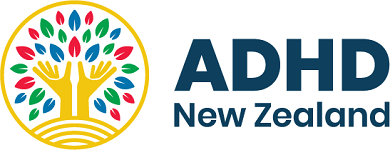Beehive Banquet Hall ca 2006 showing mural by J B Drawbridge. Source: Parliamentary Collection
ADHD NZ media release: ADHD gets some much-needed attention
Media release: 22 August 2022
ADHD New Zealand has, over the last few years, called upon the government and the medical profession to do a lot more to support the approximately 280,000 New Zealanders with ADHD. Our own research highlights how difficult it has been for our community.
On Monday 22 August, ADHD NZ with support from Green MP Chlöe Swarbrick hosted 25 representatives from government agencies and medical colleges at a hui to tackle the problem of inadequate support for those with ADHD.
ADHD NZ’s chair Darrin Bull said it was a historic moment for people with ADHD and their whanau.
“Never before in New Zealand have government agencies and the medical profession got together for a full day to address the issues facing those with ADHD.”
“ADHD is regarded as one of the most treatable medical conditions– yet we are leaving people with ADHD and their whanau to struggle undiagnosed and unsupported. The social and economic cost of failing to properly address ADHD is staggering,” says Darrin.
“No child who meets the criteria for ADHD should have to leave primary school without a diagnosis. It’s an absolute tragedy that a child with a brain that works differently is made to feel a failure – given the right support they could meet their full potential.”
Darrin Bull says it is not just children who are being left behind. Adults are seeking an assessment for ADHD in very large numbers – often following the diagnosis of their own child.
“It is very difficult for an adult to get an assessment for ADHD – it is almost impossible in the public system and the wait for a private appointment can take months if not more than a year and is unaffordable for many.”
Darrin Bull says that left untreated ADHD can make life extremely hard and can lead to an increased likelihood of anxiety, depression, substance abuse and suicide. With the right treatment – which may or may not include medication – the results can be completely life-changing.
ADHD NZ carries out annual surveys of its members. This year’s survey of parents of children with ADHD found:
• 90% of parents of children with ADHD report challenges getting adequate support
• only 30% felt their GP was knowledgeable about ADHD
• 25% waited longer than a year for their child to be assessed by a paediatrician or psychiatrist, and
• nearly half went to a private specialist with a median cost of $1,250.
The ADHD hui was held at parliament and had representatives from the Ministry of Health, Pharmac, Te Whatu Ora, NZ Police, the medical colleges for GPs, psychologists and psychiatrists and clinicians from general practice, paediatrics, psychology, psychiatry and mental health nurse practitioners. Health Minister Hon Andrew Little attended at the end of the session to hear about the progress made.
Darrin Bull said the hui identified lots of promising ideas for improving access to diagnosis and support for those with ADHD.
“There was a real spirit to move forward for our community and make a tangible difference. It’s too soon to announce a package of initiatives, but I’m very hopeful that we can do so soon.”
For more information contact: Darrin Bull, Chairperson of ADHD NZ on mobile at 027 498 4114.
ADHD New Zealand has, over the last few years, called upon the government and the medical profession to do a lot more to support the approximately 280,000 New Zealanders with ADHD. Our own research highlights how difficult it has been for our community.
On Monday 22 August, ADHD NZ with support from Green MP Chlöe Swarbrick hosted 25 representatives from government agencies and medical colleges at a hui to tackle the problem of inadequate support for those with ADHD.
ADHD NZ’s chair Darrin Bull said it was a historic moment for people with ADHD and their whanau.
“Never before in New Zealand have government agencies and the medical profession got together for a full day to address the issues facing those with ADHD.”
“ADHD is regarded as one of the most treatable medical conditions– yet we are leaving people with ADHD and their whanau to struggle undiagnosed and unsupported. The social and economic cost of failing to properly address ADHD is staggering,” says Darrin.
“No child who meets the criteria for ADHD should have to leave primary school without a diagnosis. It’s an absolute tragedy that a child with a brain that works differently is made to feel a failure – given the right support they could meet their full potential.”
Darrin Bull says it is not just children who are being left behind. Adults are seeking an assessment for ADHD in very large numbers – often following the diagnosis of their own child.
“It is very difficult for an adult to get an assessment for ADHD – it is almost impossible in the public system and the wait for a private appointment can take months if not more than a year and is unaffordable for many.”
Darrin Bull says that left untreated ADHD can make life extremely hard and can lead to an increased likelihood of anxiety, depression, substance abuse and suicide. With the right treatment – which may or may not include medication – the results can be completely life-changing.
ADHD NZ carries out annual surveys of its members. This year’s survey of parents of children with ADHD found:
• 90% of parents of children with ADHD report challenges getting adequate support
• only 30% felt their GP was knowledgeable about ADHD
• 25% waited longer than a year for their child to be assessed by a paediatrician or psychiatrist, and
• nearly half went to a private specialist with a median cost of $1,250.
The ADHD hui was held at parliament and had representatives from the Ministry of Health, Pharmac, Te Whatu Ora, NZ Police, the medical colleges for GPs, psychologists and psychiatrists and clinicians from general practice, paediatrics, psychology, psychiatry and mental health nurse practitioners. Health Minister Hon Andrew Little attended at the end of the session to hear about the progress made.
Darrin Bull said the hui identified lots of promising ideas for improving access to diagnosis and support for those with ADHD.
“There was a real spirit to move forward for our community and make a tangible difference. It’s too soon to announce a package of initiatives, but I’m very hopeful that we can do so soon.”
For more information contact: Darrin Bull, Chairperson of ADHD NZ on mobile at 027 498 4114.




